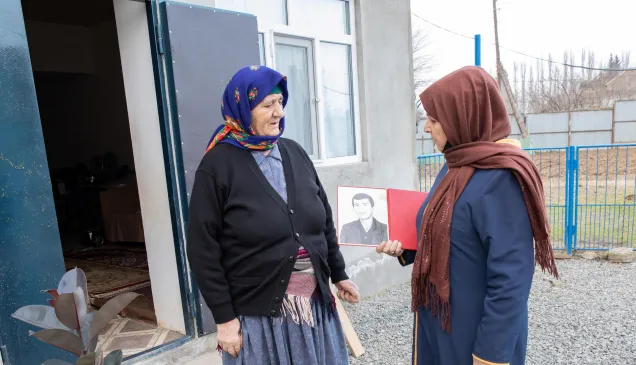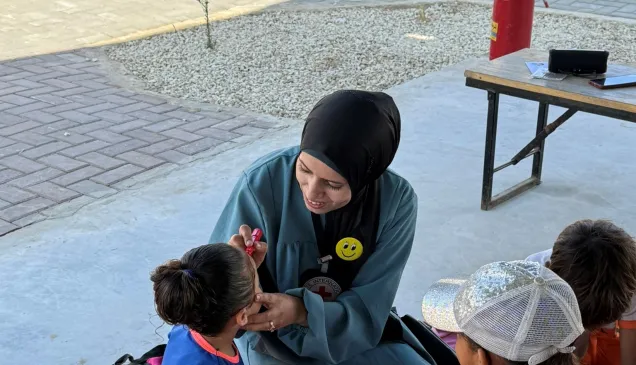China: Humanitarian and development actors must collaborate to restore people's dignity in protracted crises
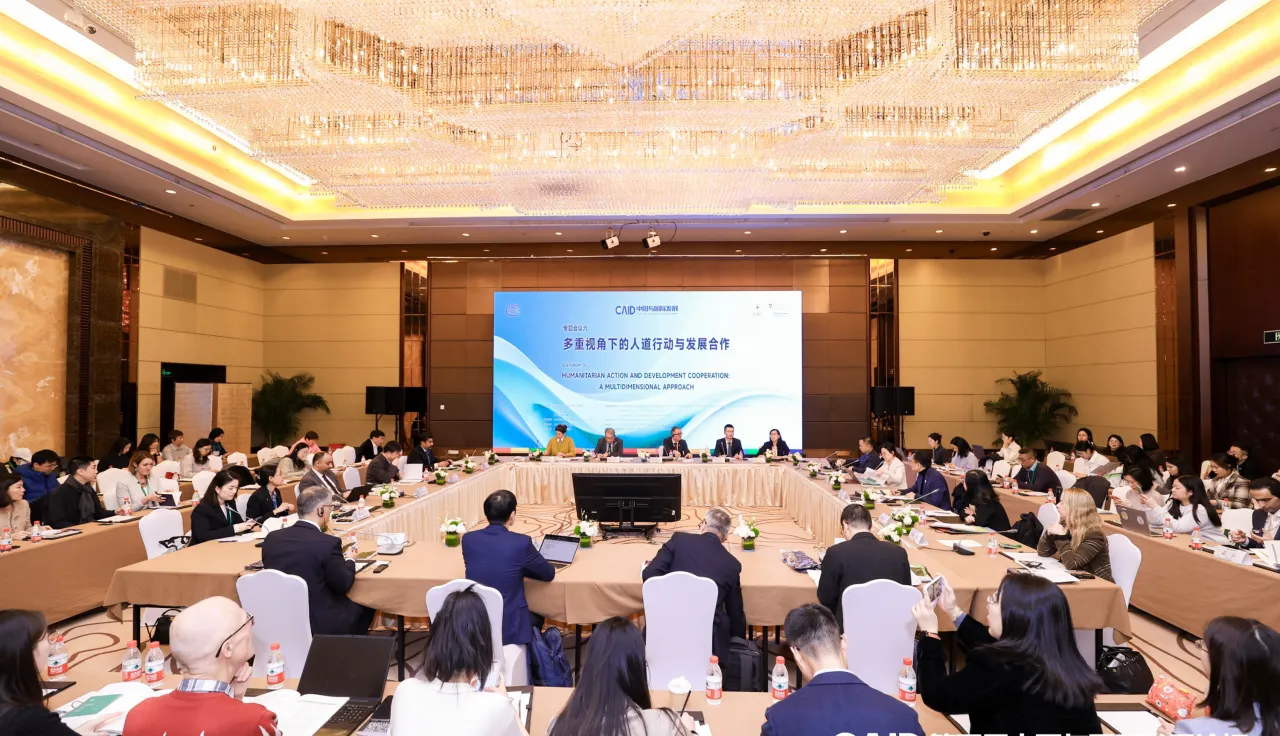
“Joining hands”, “working together”, “pooling the resources” were the often-repeated phrases during a sub-forum jointly organized by the International Committee of the Red Cross (ICRC), the Chinese Academy of International Trade and Economic Cooperation (CAITEC) of Ministry of Commerce (MOFCOM), and the Swiss Agency for Development and Cooperation (SDC) on December 11, 2024 in Beijing. Titled as Humanitarian Action and Development Cooperation: A Multidimensional Approach, the sub-form was a side event of the Fifth Forum on China and International Development.
The recently released Global Humanitarian Overview by the United Nations projects that more than 305 million people will require humanitarian aid in 2025, with conflict and climate change as main drivers of humanitarian crises. The world is facing unprecedented challenges due to the intertwined impacts of economic downturns, climatic disasters, and armed conflicts.
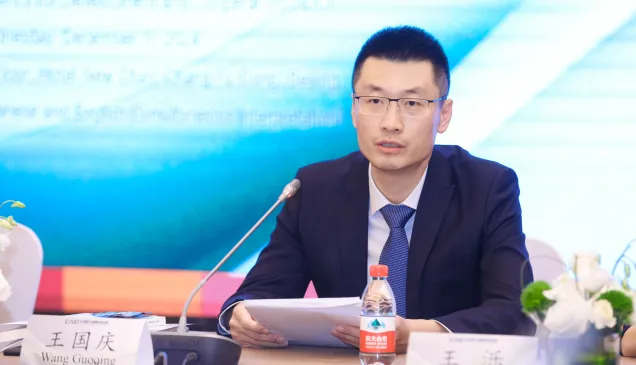
Wang Guoqing, Deputy Director-General of the Department of General Affairs of the CIDCA, delivers opening remarks.
“It is timely and significant to convene this forum to examine the pressing challenges and opportunities in humanitarian assistance, focusing on innovation and collaboration, and harness the potential of all countries and stakeholders to contribute to humanity,” Wang Guoqing, Deputy Director-General of the Department of General Affairs of the China International Development Cooperation Agency (CIDCA), remarked in his opening speech.
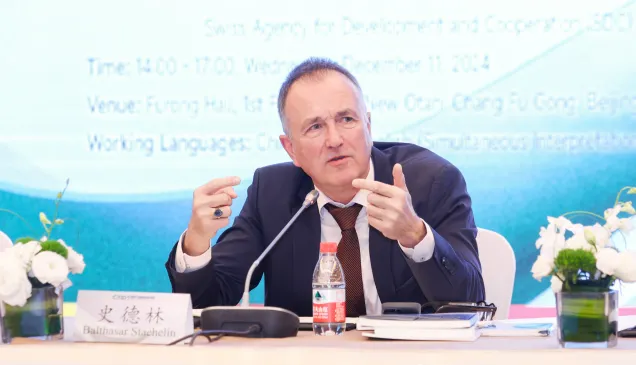
Balthasar Staehelin, the Personal Envoy of the ICRC president to China and Head of ICRC Regional Delegation for East Asia, delivers opening remarks.
Balthasar Staehelin, the Personal Envoy of the ICRC president to China and Head of ICRC Regional Delegation for East Asia, highlighted a global initiative launched in September 2024 by China along with five other countries and the ICRC to galvanize political commitment in support of international humanitarian law (IHL). “The way wars are fought has a direct impact on how societies heal and progress after the war. Therefore, adherence to IHL is key to effective humanitarian action and sustainable development”. Staehelin also stressed the need for development and humanitarian actors to pool their expertise and resources to find solutions to longstanding humanitarian challenges in protracted crises.
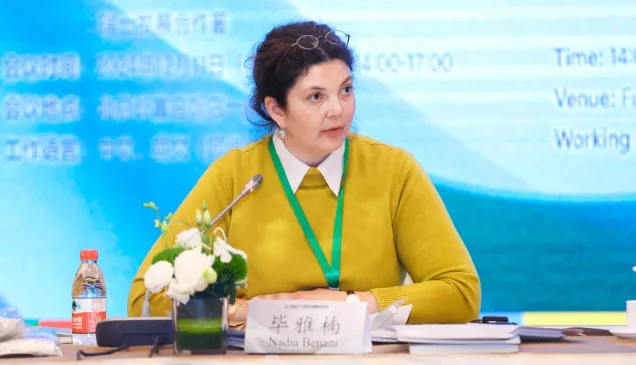
Nadia Benani, Counsellor and Head of the International Cooperation Division at the Swiss Embassy in China, delivers opening remarks.
According to Nadia Benani, Counsellor and Head of the International Cooperation Division at the Swiss Embassy in China, humanity has made significant progress in prosperity, in health, in safety, in quality of lives over the past 50 years. Increasingly severe and complex crises make it essential for us to work differently, to be innovative, to advance coherent, multi-facet responses beyond the concept of these classical linear transition from humanitarian aid to peace and then to development,” added Benani.
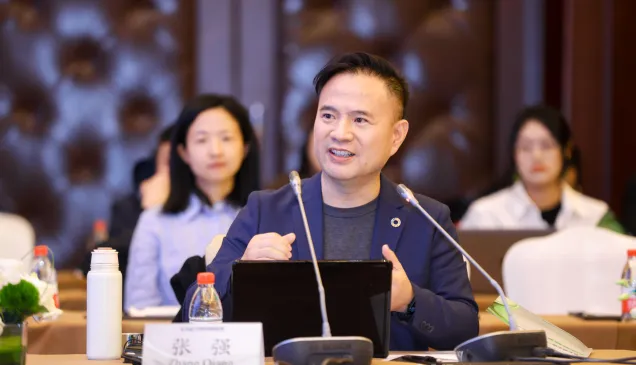
Zhang Qiang, Professor and Director of Innovation Centre for Risk Governance of Beijing Normal University, makes his keynote speech.
In his keynote speech, Zhang Qiang, Professor and Director of Innovation Centre for Risk Governance of Beijing Normal University, called for people-centered technological innovations to drive digital transformation in the humanitarian sector, creating synergies between governments, businesses and local communities.
Chen Xiaoning, Associate Researcher of the Institute of International Development and Cooperation (IIDC) of the CAITEC, pointed out that more than one-third of the goods procured by the United Nations are “Made in China” but primarily supplied to the UN through third parties, which increase procurement costs and affects aid efficiency. She noted that China should leverage its manufacturing and innovation strengths to promote humanitarian global supply chains.
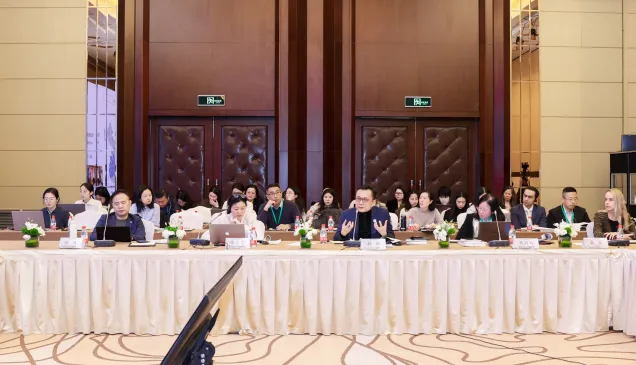
Speakers of the first roundtable (from left to right): Zhang Qiang, Professor and Director of the Innovation Centre for Risk Governance of Beijing Normal University, Chen Xiaoning, Associate Researcher of the IIDC of the CAITEC, Guo Yang, Deputy Secretary-General of Chinese Red Cross Foundation, and Jiang Lingling, China Program Director of the Asian Disaster Preparedness Center.
During the first roundtable, experts shared their diverse perspectives regarding how to innovate the pathways for synergizing humanitarian aid and long-term development. Thierry Umbehr, Head of section for Central and East Asia at the SDC, shared how the Agency carries out rescue actions with long-term development in mind to serve the affected people with both arms of humanitarian assistance and sustainable development. Guo Yang, Deputy Secretary-General of Chinese Red Cross Foundation, stressed that as practitioners, the foundation does not make a clear distinction between the two sectors, but rather tailoring assistance according to peoples’ needs.
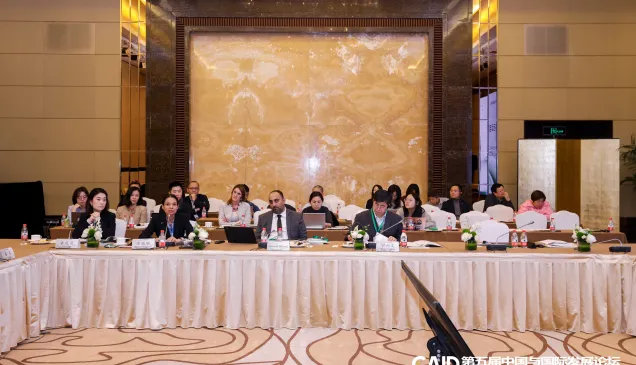
Speakers at the second roundtable (from left to right): Ji Lanlan, Humanitarian Partnerships Manager at the ICRC Regional Delegation for East Asia, Adriani Wahjanto, Deputy Representative of UNHCR in China, Marwan Behzad, Assistant to CEO of Dubai's International Humanitarian City, and Ning Bingwen, Senior Editor, International Exchange Department, International Exchange and Cooperation Center, Ministry of Emergency Management of China.
During the second roundtable, experts explored solutions to optimize humanitarian needs and supplies. Adriani Wahjanto, Deputy Representative of the United Nations High Commissioner for Refugees (UNHCR) in China, underscored the huge impact of climate change on global humanitarian-development efforts, stating, “UNHCR is committed to enabling refugees to withstand, recover and be protected from the impacts of climate change and working with partners to find sustainable solutions to nurture our hope for tomorrow.”
Ji Lanlan, Humanitarian Partnerships Manager at the ICRC Regional Delegation for East Asia, briefed the audience about ICRC’s global logistics network and its management framework. She stressed, “A strong logistics network not only facilitates effective, efficient and timely humanitarian assistance, but also accelerates the transition from conflict recovery to long-term development, serving as an important entry point for the humanitarian-development nexus.”
Hussain Al-Dahwi, Head of Health Department at the ICRC Regional Delegation, stressed that effective collaboration between humanitarian action and development is essential. “While the two sectors have distinct immediate objectives, they should not be seen as competitors, but as partners. This forum has reinforced the belief that they are complementary pillars of a shared vision aimed at building a more resilient world,” said Hussain.
Wang Luo, Director of the IIDC of CAITEC, stressed in her closing remarks, “It’s an imperative to innovate and collaborate: to have new solutions for our pressing challenges and to enhance mutual understanding and create more space for collaboration.”
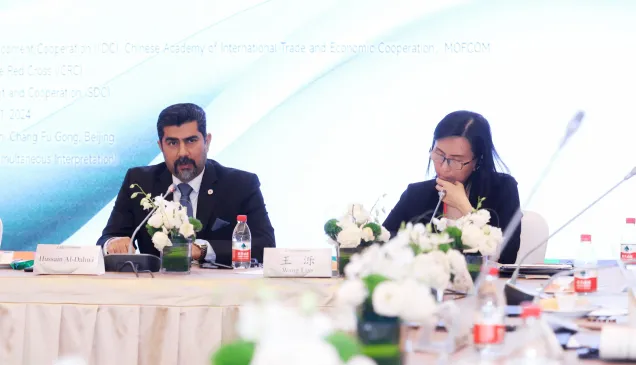
Hussain Al-Dahwi (left), Head of Health Department at the ICRC Regional Delegation and Wang Luo, Director of the IIDC of CAITEC, deliver closing remarks.
As the flagship report of the China and International Development Forum, the IIDC released on December 8 a report titled “Perspectives and Prospects - China and International Development Report 2024-2025”, which includes a chapter on “The Complex Global Humanitarian Situation and China's Humanitarian Contributions”. Citing data from the ICRC's annual reports and appeals, the chapter highlights the organization’s primary concern: ensuring compliance with IHL.

